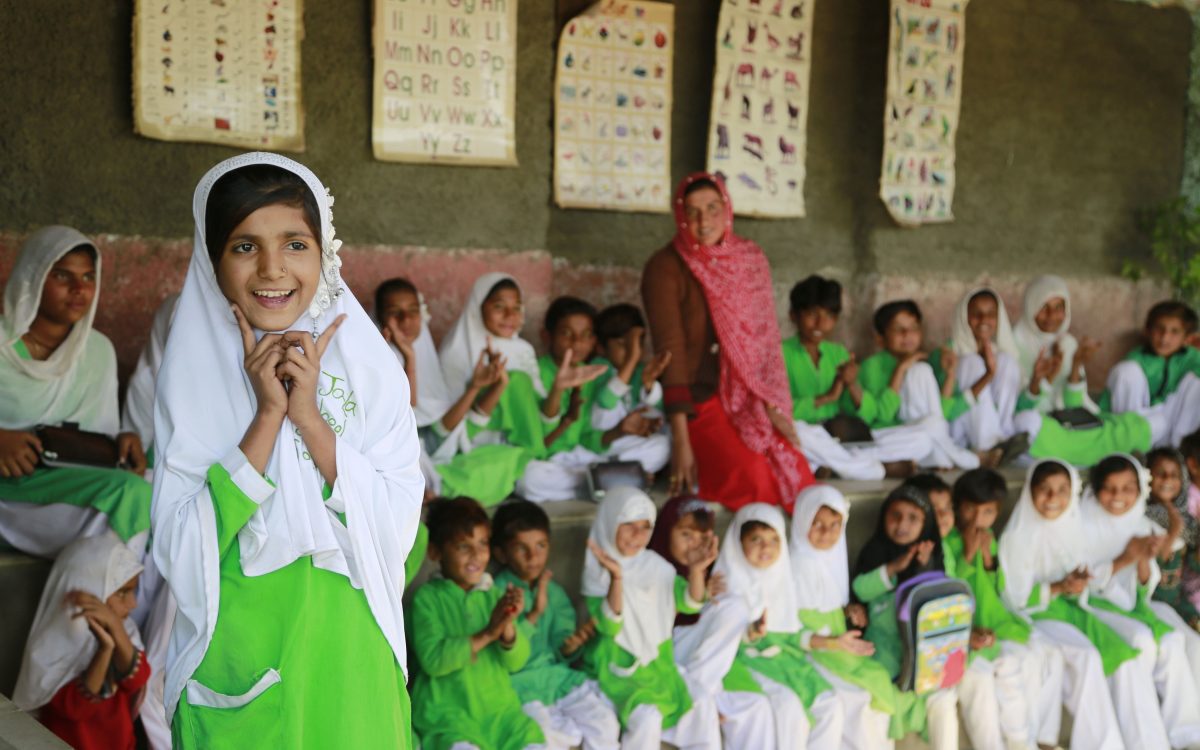
 Fizza Kazmi
Fizza Kazmi
In a country brimming with talent and untapped potential, the pursuit of quality education has always been a monumental challenge. Pakistan, a nation of over 220 million people, has long grappled with subpar educational standards, hindering the progress and growth of generations. However, recent years have witnessed a paradigm shift as Pakistan takes determined strides towards offering quality education to all its citizens, particularly the marginalized class.
According to the Pakistan Education Statistics Report 2023, the literacy rate stands at 59.3% compared to 62.8% reflected in the Economic Survey 2022-23. This low literacy rate is not only detrimental to individual growth but also has severe implications for the social and economic development of the country.
Statistics indicate that only 40% of Pakistani children receive a quality education, highlighting the urgent need for reform. According to a report by the Pakistan Coalition for Education (PCE), only 57% of children in the country can read a story, while 51% cannot even comprehend simple sentences. These figures clearly depict the grim situation of education in Pakistan.
Many factors contribute to this pressing issue, including inadequate infrastructure, lack of trained teachers, limited access to educational resources, and socio-economic divides that deepen educational disparities. The disparity in educational opportunities is also evident when we examine the gender gap in enrollment. According to the Pakistan Social and Living Standards Measurement Survey 2019, the net enrollment rate for boys is 82% compared to 67% for girls. This gender imbalance deprives girls of their right to education and perpetuates gender inequality in society.
The Global Teacher Status Index 2018 ranked Pakistan at the 123rd position out of 140 countries, highlighting the low status and esteem associated with the teaching profession in the country. This, coupled with the lack of professional development opportunities, leads to teachers who are ill-equipped to effectively impart knowledge to students. Furthermore, the curriculum in Pakistan is often criticized for lacking practical relevance and critical thinking skills. The focus on rote memorization and outdated teaching methodologies leaves students ill-prepared for the challenges of the modern world. The government’s allocation of Rs. 97.098 billion for Education Affairs and Services in the federal budget for the fiscal year 2023-24 has drawn attention and criticism for its modest increase of around 5.5 percent compared to the revised allocation of the current fiscal year. This insufficient allocation of resources limits the capacity of the education system to cater to the needs of the growing population and provide quality education.
Recognizing the need for change, Pakistan has developed comprehensive strategies to upgrade its education system in the coming years. By 2024 and beyond, the government aims to bridge the quality education gap by implementing reforms focused on accessibility, equity, and improved learning outcomes. The National Education Policy 2021 aims to bridge the educational divide and improve access to quality education for all. The launch of the Education Sector Plan (ESP) 2018-2025 demonstrates the country’s commitment to education reform and improving learning outcomes.
To ensure the marginalized class receives quality education, the government has launched initiatives such as the National Education for All Program. This program focuses on enrolling out-of-school children, providing them with quality learning opportunities and equal access to educational resources. Furthermore, public-private partnerships have played a significant role in improving the quality of education in Pakistan. Several non-governmental organizations and private institutions have partnered with the government to establish schools and provide innovative teaching techniques and resources, especially in marginalized areas.
Pakistan has also fostered collaborations with various foreign NGOs and countries to enhance its education system. Partnerships with international organizations such as UNESCO and UNICEF have enabled the country to gain valuable insights, resources, and support necessary for upgrading education quality. Organizations such as The Citizens Foundation (TCF) and Alif Laila Book Bus Society have undertaken commendable initiatives to provide quality education to marginalized communities. These initiatives focus on creating conducive learning environments, training teachers, and implementing innovative teaching methodologies.
As part of the Sustainable Development Goals (SDGs), Pakistan is actively working towards Goal 4: Quality Education. By aligning strategies and reforms with SDG targets, the country aims to ensure inclusive and equitable quality education for all, fostering lifelong learning opportunities.
Prominent personalities in Pakistan have voiced their support for quality education, with Nobel laureate Malala Yousafzai stating, “One child, one teacher, one book, and one pen can change the world.” This powerful quote resonates with the essence of quality education, emphasizing its potential in transforming societies.
To uplift the society’s quality of education, a multi-pronged approach needs to be implemented in Pakistan. Firstly, infrastructure development is underway, with the construction of new schools, expansion of existing facilities, and provision of essential educational resources.
Secondly, one of the most effective ways to improve education quality is to embrace modern teaching methodologies. Integrated technologies, such as smart boards, e-learning platforms, and virtual labs, can make lessons more interactive, engaging, and tailored to individual student needs. These tools also encourage critical thinking, problem-solving, and creativity, preparing students for the demands of the 21st-century workforce. Creating an inclusive education system that supports students of diverse backgrounds and abilities is crucial for improving educational quality. By embracing inclusive practices, schools can provide personalized support for students with special needs, linguistic minorities, and economically disadvantaged backgrounds.
Investing in the professional development of teachers is vital to delivering high-quality education. Ongoing training programs can equip teachers with updated knowledge and teaching techniques, enabling them to create innovative lesson plans that cater to diverse learning styles and abilities. Encouraging collaboration and knowledge-sharing among educators also helps to enhance teaching practices.
Actively involving parents in their child’s educational journey can have a significant impact on overall scholastic achievement. Schools can organize regular parent-teacher meetings, workshops, and orientations to keep parents informed about their child’s progress and provide guidance on their involvement in their education. This collaboration creates a supportive learning environment that positively influences students’ motivation and engagement.
Furthermore, Pakistan is focusing on curriculum reforms to make education more relevant, engaging, and globally competitive. By incorporating critical thinking, problem-solving, and digital literacy skills into the curriculum, students will be equipped to meet the challenges of the modern world.
In conclusion, Pakistan’s journey towards quality education is gaining momentum. Through strategic planning, collaborations with foreign entities, and initiatives targeted at marginalized communities, the nation is making significant progress. By embracing the transformative power of education, Pakistan is revolutionizing its education system to create a brighter future for all its citizens.





